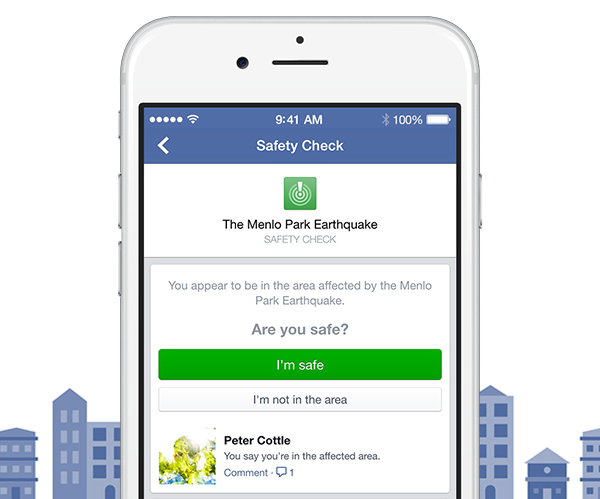When we hear news of a natural disaster or other problem in an area, it’s common to worry about people we know living in that area. Facebook is launching a new feature to cut down on worried enquiries.
With the new safety check tool, which is launching worldwide, Facebook will mark particular areas as being subject to a disaster. It will then send a notification to every Facebook user it believes is in the area. This will be based on a combination of the user’s listed city, any places where they have recently used location-based features such as checking in, and the IP addresses they’ve used to access Facebook recently.
If you get the notification, you can click on one of two buttons to say you are either safe or not in the area. Facebook will then automatically post a status update to that effect.
The feature will also let users mark their friends as safe, for example if they are unable to get online, or have more important things to do.
If and when you see a Safety Check update about one or more of your friends, you’ll be able to choose a bookmark option that brings together all the updates from friends in the area.
The feature has developed out of a virtual disaster message board created by Facebook in the wake of the 2011 Japanese tsunami.
While there’s obviously nothing stopping somebody posting an “I’m safe” update on their own initiative, the prompting might increase the number of people doing so. That in turn could cut down on the number of texts and calls from concerned friends, reducing strain on local cellphone networks in the affected area.
The potential downside is the risk that people might start worrying even more about friends in the disaster area — particularly those who are Facebook addicts — if they don’t check in as safe. Users will be able to see a list of friends believed to be in the area who haven’t yet responded to the notification.
In theory Facebook will have a complete list of all its users who are still unaccounted for, though it’s not made any mention of passing on such details to the authorities.

